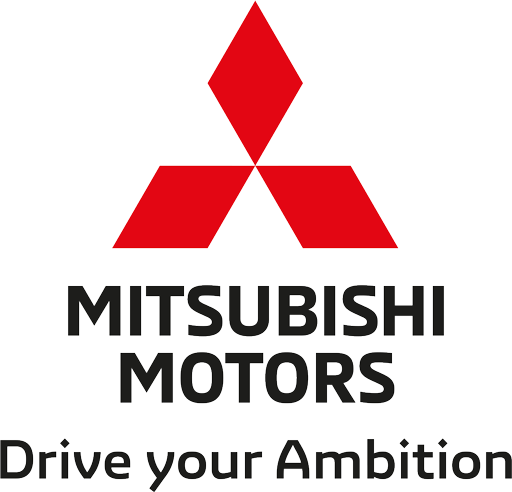Mitsubishi Motors in the UK ELV Regulation
Learn more about Mitsubishi Motors in the UK and the ELV Regulation for vehicles at the end of their useful life.
What is the ELV Regulation?
The End-of-Life Vehicle (ELV) Regulation aims to ensure
- All last owners are able to dispose of their end of life vehicles (ELVs) responsibly and free of charge anywhere in the UK;
- All ELVs are properly handled, depolluted and recycled, limiting material being disposed of as landfill;
- All last owners who responsibly dispose of their ELV receive the correct paperwork to ensure they are registered as no longer responsible for the vehicle with DVLA.
The Extended Producer Responsibility part of the ELV Regulations mandates that all UK vehicle manufacturers and importers must:
- Ensure they have a contracted Authorised Treatment Facility (ATF) network in place to receive qualifying vehicles which they originally placed on the market at the end of their useful life, at no cost to last owners and anywhere in the UK;
- Ensure all ELVs for which they are responsible are correctly depolluted and recycled;
- Prohibit the use of hazardous substances (for new cars from 3rd November 2003, excluding essential components) such as Lead, Mercury, Cadmium, and Hexavalent Chromium;
- Meet recycling, reuse and recovery targets of 95% in total for each of their ELVs processed;
- Ensure last owners are absolved of ongoing legal responsibility once the vehicle has been surrendered to an ATF.
Qualifying Vehicle Criteria:
- ELV must be delivered to (or in certain cases for ‘remote areas’ collected by) a manufacturer/importer-appointed free take-back facility;
- ELV must be complete, including all essential components such as the engine, transmission, bodywork, wheels, and catalyst (if originally fitted);
- ELV must be free from additional waste, including household or garden waste, extra tyres, etc.
MITSUBISHI UK Take-Back Network
To comply with recycling and recovery targets, Mitsubishi Motors in the UK has partnered with CarTakeBack.com Limited under a long-term agreement to provide end-of-life vehicle services.
CarTakeBack operates the largest contracted network of take-back and Authorised Treatment Facilities (ATFs) in the UK, ensuring full UK coverage and that all ELVs surrendered to the network will be disposed of in accordance mandated depollution requirements and processed to meet the relevant recovery, reuse and recycling targets. Last owners of Mitsubishi vehicles can rest assured that:
- CarTakeBack ATFs will accept all qualifying Mitsubishi ELVs free of charge when presented by the last registered owner (with proof of ownership);
- All CarTakeBack ATF partner sites operate in accordance with DEFRA standards and hold current Environment Agency licenses;
- Last owners of all ELVs disposed of with CarTakeBack ATFs will promptly receive an official electronic Certificate of Destruction, ensuring they are no longer registered with DVLA as owner of the vehicle.
The De-Pollution Process:
The End-of-Life Vehicle (ELV) Regulations are designed to ensure that vehicles which have reached the end of their operational life are disposed of with minimal environmental impact, with:
- All fluids and gases drained;
- The battery, wheels, and tyres removed;
- Airbags neutralised (activated);
- Saleable parts removed and sold where appropriate.
Once the ELV has been depolluted, it is crushed and/or transported to a facility where it is crushed and processed into various different waste streams. Separation techniques ensure all types of metal are available for recycling, and through further advanced processes other materials such as plastics and glass are also able to be reused in future manufacturing.
Disposal of automotive batteries (usually found under a vehicle’s bonnet and used for starting the vehicle and/or powering items such as lights, windscreen wipers and fans etc.):
Under the Waste Batteries and Accumulators Regulations 2009, automotive batteries cannot be sent to landfill or incinerated; they must be collected and recycled responsibly. Mitsubishi Motors in the UK are classed as a producer of automotive batteries under these regulations, and consequently:
- Are obligated to ensure they provide arrangements for a free of charge collection service from premises such as garages, scrapyards, ATFs and Civic Amenity Sites;
- Have appointed CarTakeBack to provide a compliant collection service on their behalf.
- For premises such as those listed above, please visit: Scrap Mitsubishi With CarTakeBack | Official Recycling Partner to make arrangements for collection. Members of the general public having automotive batteries to dispose of are able to drop these into Civic Amenity Sites free of charge.
EV & HEV Traction (Industrial) Batteries
Under the Waste Batteries and Accumulators Regulations 2009, EV batteries cannot be sent to landfill or incinerated; they must be collected and recycled safely and responsibly. Lithium-Ion batteries in particular can present significant hazards if handled incorrectly. Mitsubishi Motors in the UK are classed as a producer of Industrial batteries under these regulations, and consequently:
- Are obligated to ensure they provide arrangements for a free of charge collection service from premises such as garages, scrapyards, ATFs and Civic Amenity Sites;
- Have appointed CarTakeBack to provide a compliant EV & HEV battery collection service on their behalf;
- For premises such as those listed above, please visit: Scrap Mitsubishi With CarTakeBack | Official Recycling Partner to make arrangements for collection. Members of the general public having EV or HEV batteries to dispose of will need to contact their nearest Mitsubishi Motors in the UK dealership. Service Centre Locator | Mitsubishi Motors UK
Portable Batteries
Manufacturers placing less than one tonne of portable batteries on the market annually have no collection, treatment, or recycling obligations.
However, thousands of free battery collection points exist in supermarkets (e.g., Currys, Poundland, Sainsbury’s, Tesco, Boots) as well as certain public buildings.
